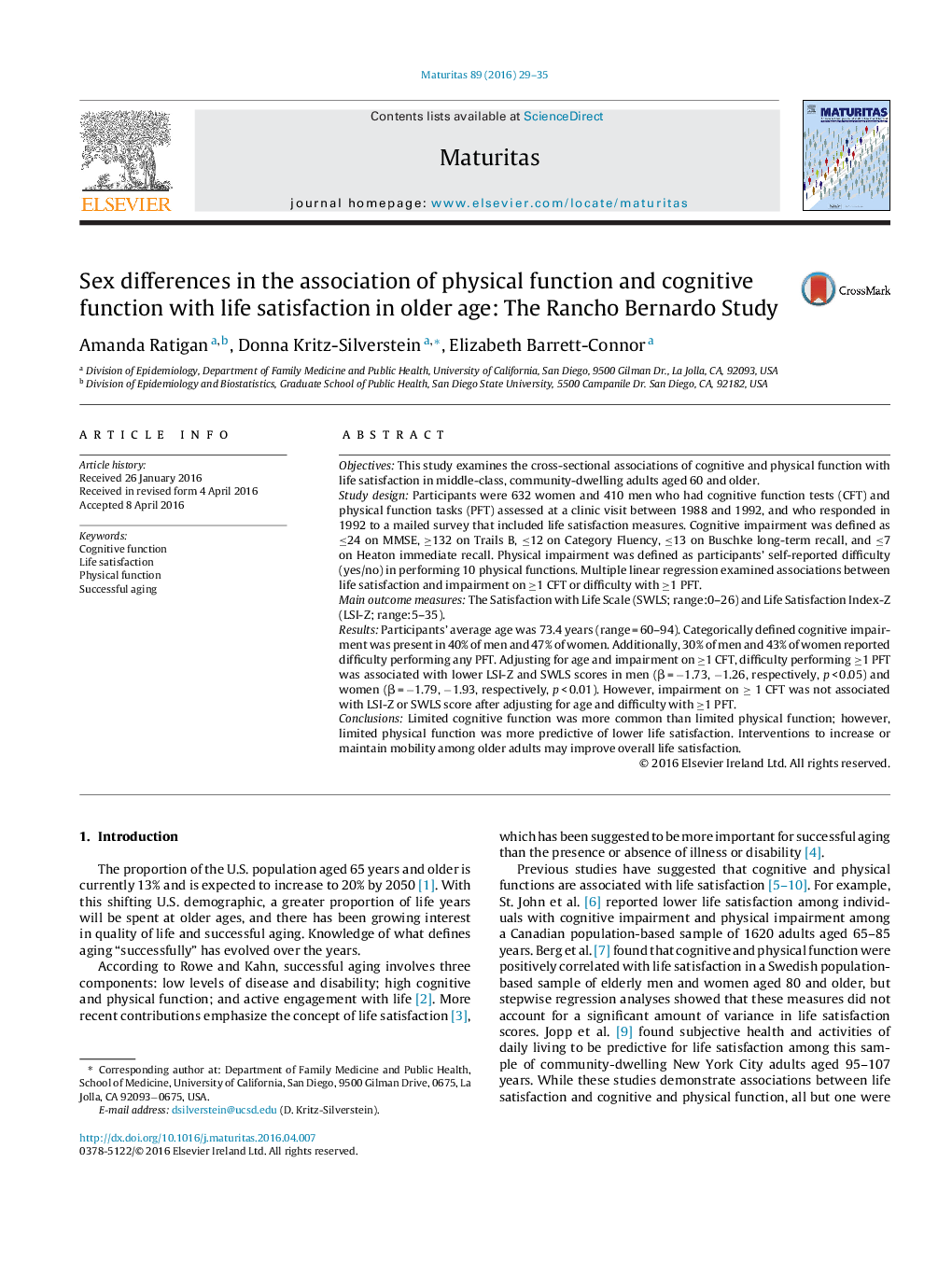| Article ID | Journal | Published Year | Pages | File Type |
|---|---|---|---|---|
| 1917004 | Maturitas | 2016 | 7 Pages |
•In a sample of middle-class, community-dwelling adults aged over 60 years, limited cognitive function was more common than limited physical function.•Physical function may play a larger role in life satisfaction than cognitive function.•Impairment of physical function was associated with life satisfaction.•Impairment of cognitive function was not associated with life satisfaction.•More women than men had impairment of cognitive and physical functions.
ObjectivesThis study examines the cross-sectional associations of cognitive and physical function with life satisfaction in middle-class, community-dwelling adults aged 60 and older.Study designParticipants were 632 women and 410 men who had cognitive function tests (CFT) and physical function tasks (PFT) assessed at a clinic visit between 1988 and 1992, and who responded in 1992 to a mailed survey that included life satisfaction measures. Cognitive impairment was defined as ≤24 on MMSE, ≥132 on Trails B, ≤12 on Category Fluency, ≤13 on Buschke long-term recall, and ≤7 on Heaton immediate recall. Physical impairment was defined as participants’ self-reported difficulty (yes/no) in performing 10 physical functions. Multiple linear regression examined associations between life satisfaction and impairment on ≥1 CFT or difficulty with ≥1 PFT.Main outcome measuresThe Satisfaction with Life Scale (SWLS; range:0–26) and Life Satisfaction Index-Z (LSI-Z; range:5–35).ResultsParticipants’ average age was 73.4 years (range = 60–94). Categorically defined cognitive impairment was present in 40% of men and 47% of women. Additionally, 30% of men and 43% of women reported difficulty performing any PFT. Adjusting for age and impairment on ≥1 CFT, difficulty performing ≥1 PFT was associated with lower LSI-Z and SWLS scores in men (β = −1.73, −1.26, respectively, p < 0.05) and women (β = −1.79, −1.93, respectively, p < 0.01). However, impairment on ≥ 1 CFT was not associated with LSI-Z or SWLS score after adjusting for age and difficulty with ≥1 PFT.ConclusionsLimited cognitive function was more common than limited physical function; however, limited physical function was more predictive of lower life satisfaction. Interventions to increase or maintain mobility among older adults may improve overall life satisfaction.
